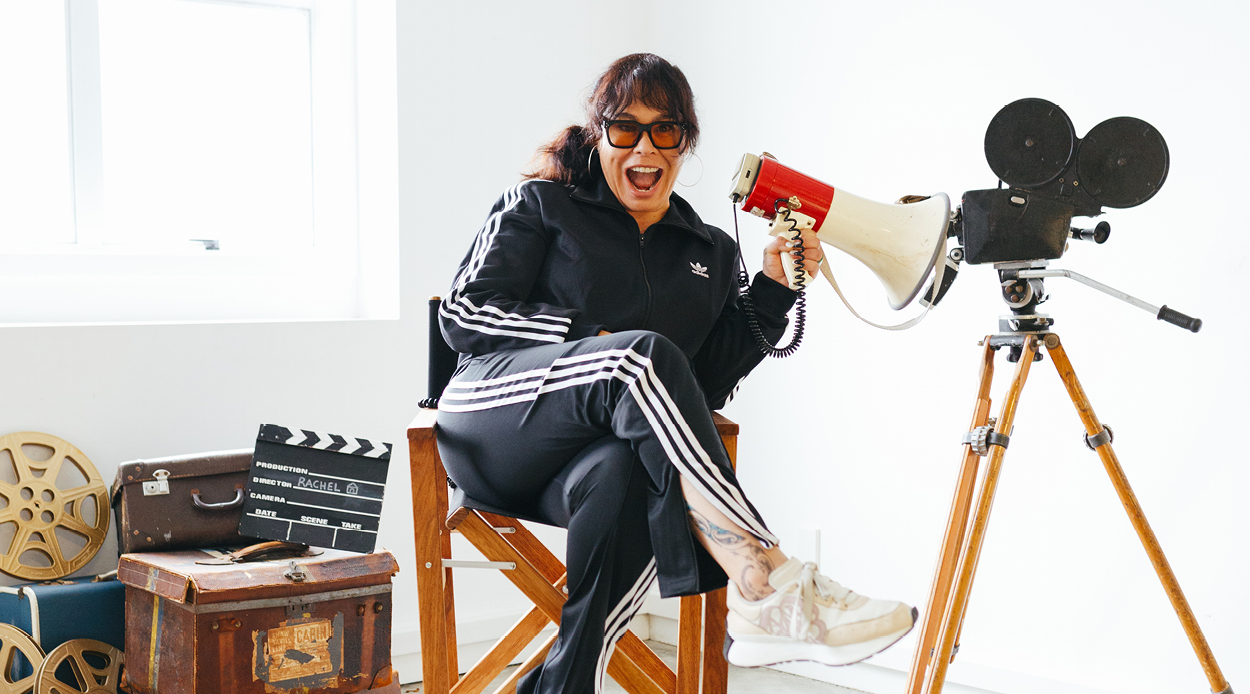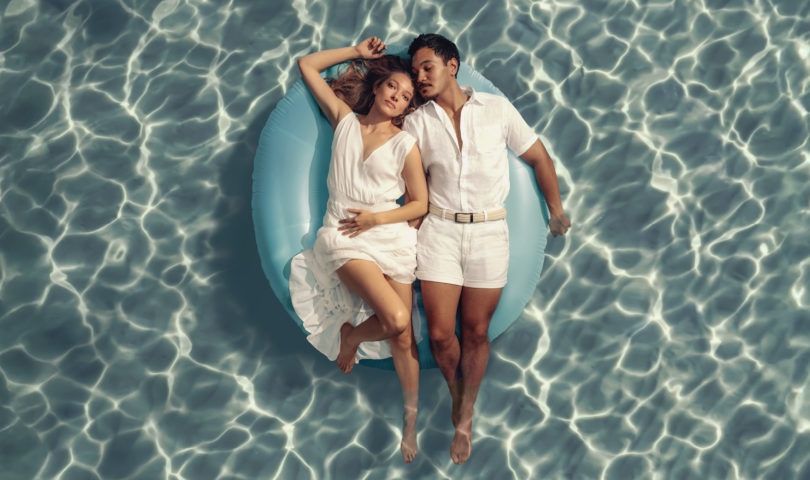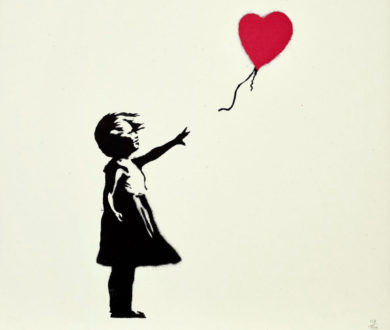When an actor can play supporting roles with the kind of impactful presence one might expect from a lead, it points to a rare talent. An art within the form, this ability to deliver a few simple lines in such a way as to both enhance a scene and bring depth and dynamism to a character that might otherwise fade into the background is reserved only for masters of the craft, and Rachel House is undoubtedly one. Here, we sit down with the renowned actress and director as releases her first feature film, to talk about her craft, her career and why calling on diverse voices is so important for the future of her industry.
You might recognise House from her many film appearances as characters like Shilo in the Academy-Award-winning Whale Rider, Paula Hall in Hunt for the Wilderpeople (opposite Sam Hunt and Julian Dennison), or Topaz in Thor: Ragnarok. Or, you might be more familiar with her voicework in globally-renowned animated films like Disney’s Moana and Soul, or even her notable appearances in popular television shows including Heartbreak High and Our Flag Means Death. House has, after all, been working at the top of her game for decades, and her resume is as much a testament to her acrobatic range as it is to the gravitas she brings to any project, whatever the scope or screen time of her character.
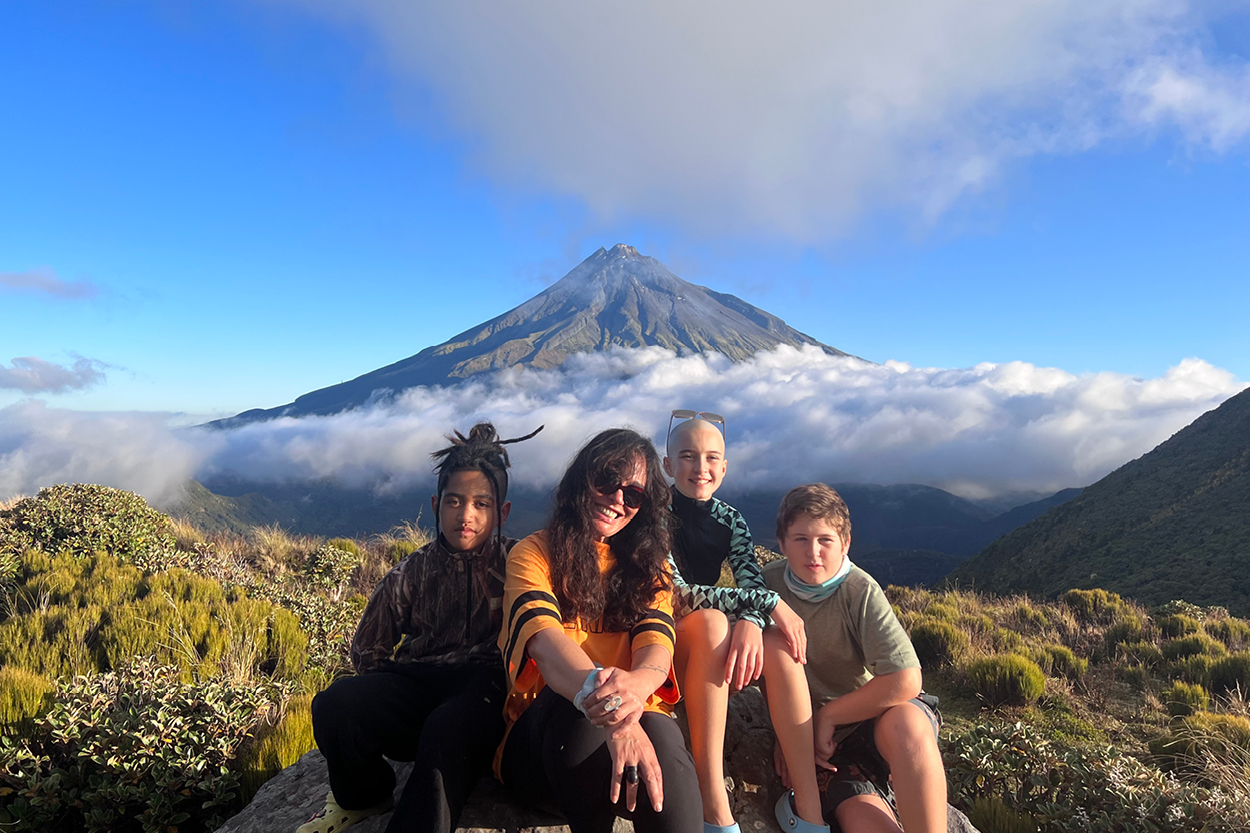
But it would be a mistake to limit our understanding of House, or her career, to only the notable supporting characters she has played (although she does play them so well), and a shallow reading of her contribution to the landscape of film and television in Aotearoa. Because while House has been a fixture on our screens for many years, she has also operated behind the scenes for a number of projects which is now culminating in the release of her first feature film, The Mountain, a directorial debut that is heartfelt, moving and an ode to House’s unique creative vision and passion for telling stories that matter.
This impetus to engage with her work in a meaningful way has long been a theme of House’s trajectory. Raised by parents who loved and consumed the arts, despite neither one working in them specifically, House tells me that she never saw herself in a career outside of the industry. “At one point I talked about being a lawyer or a journalist,” she tells me, “but then I realised that I probably just wanted to play a lawyer or a journalist… I can’t imagine doing anything else,” she pauses, “It’s deeply ingrained.”
In her early years in Whangārei, House was part of a homegrown theatre company, Toy Box Theatre before heading to Wellington’s Toi Whakaari to hone her dramatic skills. It was a time in her life that, she says, cemented “her calling”, and saw her make connections with peers that would not only remain throughout her career but that, in some cases, would propel her forward significantly. One such person was Taika Waititi. Anyone familiar with House’s body of work will know how many projects she has undertaken with Waititi since his 2007 feature, Eagle vs Shark. In fact, it could be argued that this particular duo has cultivated one of those famous showbiz partnerships — a relationship built on shared creative fulfilment and a deep respect for one another’s skills and methods.
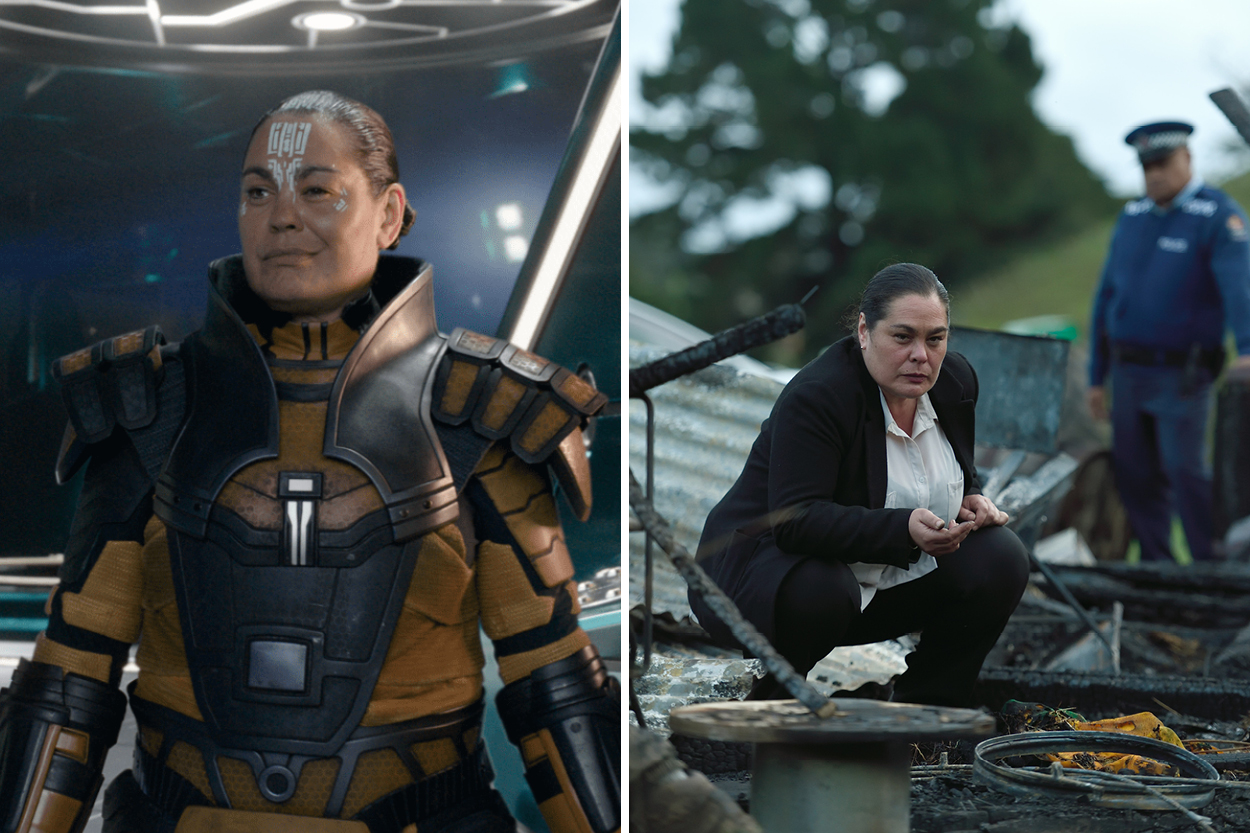
“It’s been a real privilege to witness Taika’s remarkable rise and to also work on a number of projects with him,” House tells me. “You know, it makes such a difference having people who are like family around you, people who you can rely on and that you know you work with really well.” Across her career, House has featured in a variety of Waititi’s films, from Eagle vs Shark, to Boy, to Hunt for the Wilderpeople and notably, Thor: Ragnarok in which, as Topaz, the staunch henchwoman to Jeff Goldblum’s Grandmaster, she made her mark on what is now a major Marvel Studios franchise. “There were moments on that set when I was going, ‘okay woah this is happening’,” she tells me, with a laugh. “But you get used to that pretty quickly. You realise that all these celebrities that are touted as ‘elite’ are actually just nice people.”
“The move to tell more diverse stories is amazing, and people clearly want to see them, but we still have a long way to go, and we need the right voices behind the scenes too… that’s how we really start to learn about each other.”
In her role as Topaz, House truly shone opposite Goldblum, her quick humour and ability to improvise working as the perfect counterbalance to her co-star’s famously fluid and campy manner. “Working with Jeff was like working with jazz,” House explains (much to my delight). “He embodies that unpredictable, musical rhythm, he’s up here, then he dips down and you have to be in it with him… it’s wonderful and surprising and keeps you on your toes.”
In the hands of a lesser actor, I am sure that her character could have been relegated to the ranks of strong but forgettable supporting roles that prop up much of the Marvel Cinematic Universe. But with House in the driving seat, Topaz took on a presence that extended well beyond her role on paper, turning a line as simple as “burnt toast” into a moment that could still elicit a giggle long after the film’s credits had rolled. “It helped that it was T [Taika] directing,” she says, “because I felt comfortable taking risks.” (Although I would argue that it’s also House’s ability to work collaboratively, and her willingness to play with timing that contributed most to her success in this role, and indeed in much of her work before and after it.)
It also has a lot to do with instinct. As House tells me, one of the most important things she has learned from her years in the industry is the importance of a director giving their actors space to work. “To direct a performance, you’ve really got to trust your actors and leave them alone,” she tells me, “I usually do my best work when I’m just left to do it, because there’s a confidence that comes with that.” I suggest to House that perhaps the reason she has been drawn to more supporting roles over her career is because they afford her more space than a leading role might. She pauses, “Wow, you’ve kind of blown my mind a bit there… yeah, you might be right.”
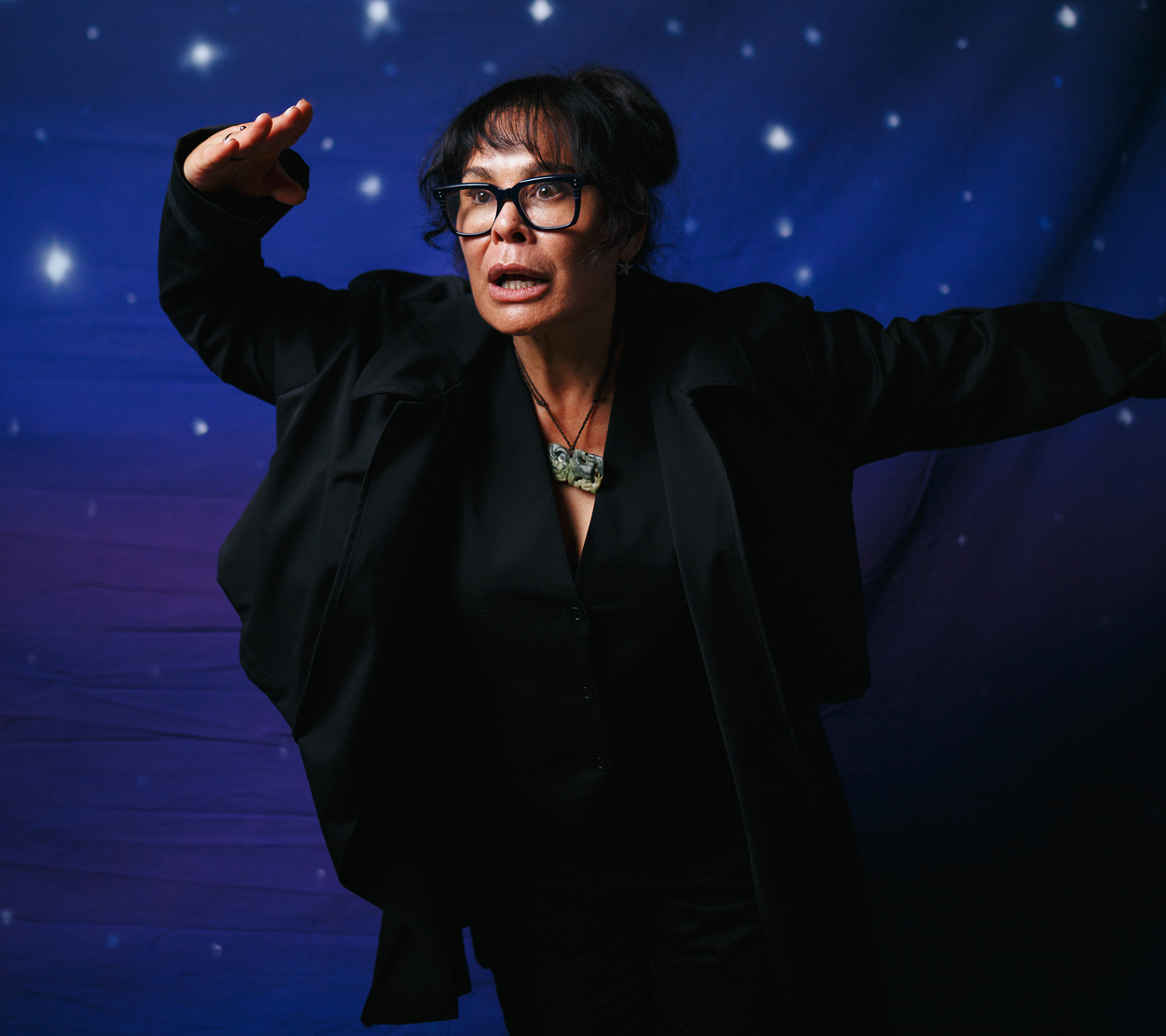
That said, House explains that she is also drawn to roles that offer meaningful character arcs. To her, it doesn’t necessarily matter how many scenes she is in or how many lines she has, only that the person she is playing starts in one place and finishes in another, and that there is a real story there. It’s also about content and context. “We’re living in a pretty different place to when I first started out in this industry,” House tells me. “Being a Māori woman, there really wasn’t a lot out there for me when I was younger, and now I think there’s more emphasis on other kinds of stories being told, whether it’s in the realm of sci-fi, for instance, which can be culturally ambiguous and open up opportunities for everyone, or in more culturally specific stories, which are also important, and really satisfying to see.”
House has played a significant role in this change, too. Her projects (particularly the ones she has undertaken with Waititi) have, over the years, given more visibility than ever to aspects of her culture that were very rarely represented on screen. They have also given her the platform to advocate for putting the right people behind the scenes too, making room for other voices to be heard within the industry at large. “I was recently reflecting on a project that I did a long time ago where the director should have been Māori,” she says, “and I don’t think that happens as much anymore.” She pauses, “the move to tell more diverse stories is amazing, and people clearly want to see them, but we still have a long way to go, and we need the right voices behind the scenes too… that’s how we really start to learn about each other.”
One project House tells me she was particularly proud of was Moana, the animated mega-hit from Disney in which she voiced Gramma Tala, the wise and eccentric grandmother of the title protagonist. “Seeing pictures of this young Polynesian girl with amazing muscular calves and strong broad shoulders on the backs of buses and on billboards was so exciting to me,” she says. “Disney is such an institution, we have all grown up with it, so it was very satisfying to have a story like ours become a part of that canon… the next step,” she says with a glint in her eye, “is to ensure that future projects like Moana are Polynesian-run.”
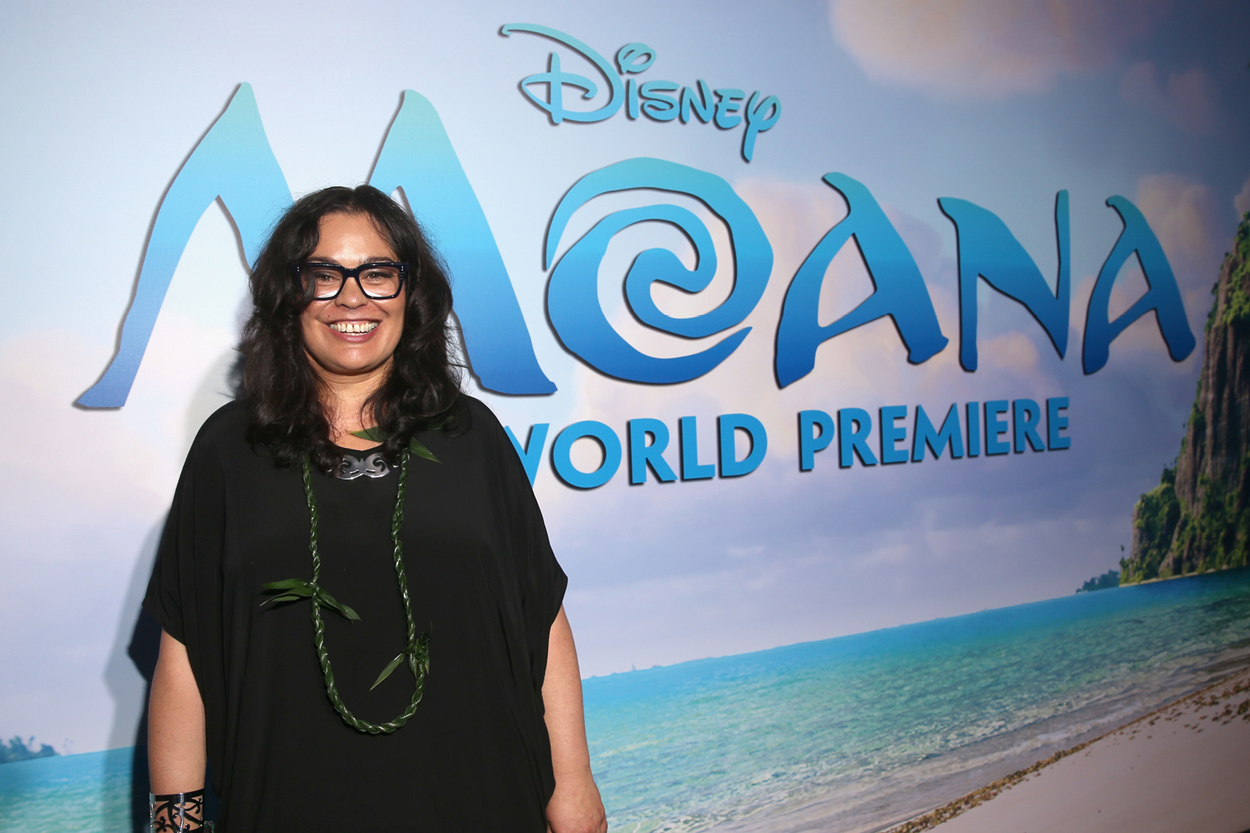
For House, this desire to create a more diverse landscape in the dramatic arts has long been a driving force. In 2012, she directed the first te reo Māori version of Shakespeare’s Troilus and Cressida for London’s Globe Theatre — a challenging but, House tells me, incredibly rewarding undertaking that she executed with her characteristically thorough approach. Other theatrical projects she has directed (with much acclaim) include the award-winning Have Car Will Travel and 2013’s Hui for the Auckland Arts Festival — among many others. Now, House has transitioned her years of stage directing into her first feature film, a debut that is not only the culmination of her experience but a project that also reflects her cultural sensibilities in a humorous, heartfelt and deeply sensitive way.
“House’s latest project is just the start of an exciting new chapter for this artistic multi-hyphenate, whose move into feature film directing could open a number of doors for new ventures in the coming years.”
The Mountain follows the story of Sam, a young Māori girl suffering from cancer who, with two intrepid friends, embarks on a journey to connect with her culture and what she sees as her mountain — Mount Taranaki — discovering the healing power of friendship and adventure on the way. “I’m often sent scripts but I don’t usually connect with them like I did with this one,” House tells me. “I could see how well it would work if I was to infuse it with our culture, so I reworked it to include Maunga Taranaki and then the characters and intentions all changed around that,” she pauses. “It took a couple of years to get it all right but I am really proud of what it has turned into and the people involved have been amazing… they really cared about the story and they cared about the kids.” Through the journeys of the three protagonists, House was able to speak to her culture and to her own upbringing, where Sam, over the course of the film, discovers more about her identity through her connection to the natural world. “Don’t take this beautiful world for granted,” House tells me when I ask about the central message of the film. “Having this story told from the perspective of kids really allowed us to tap into that sense of wonderment about nature and origin stories and the kinds of tales on which our culture has been built,” she explains, “there truly is magic everywhere, if you know where to look.”
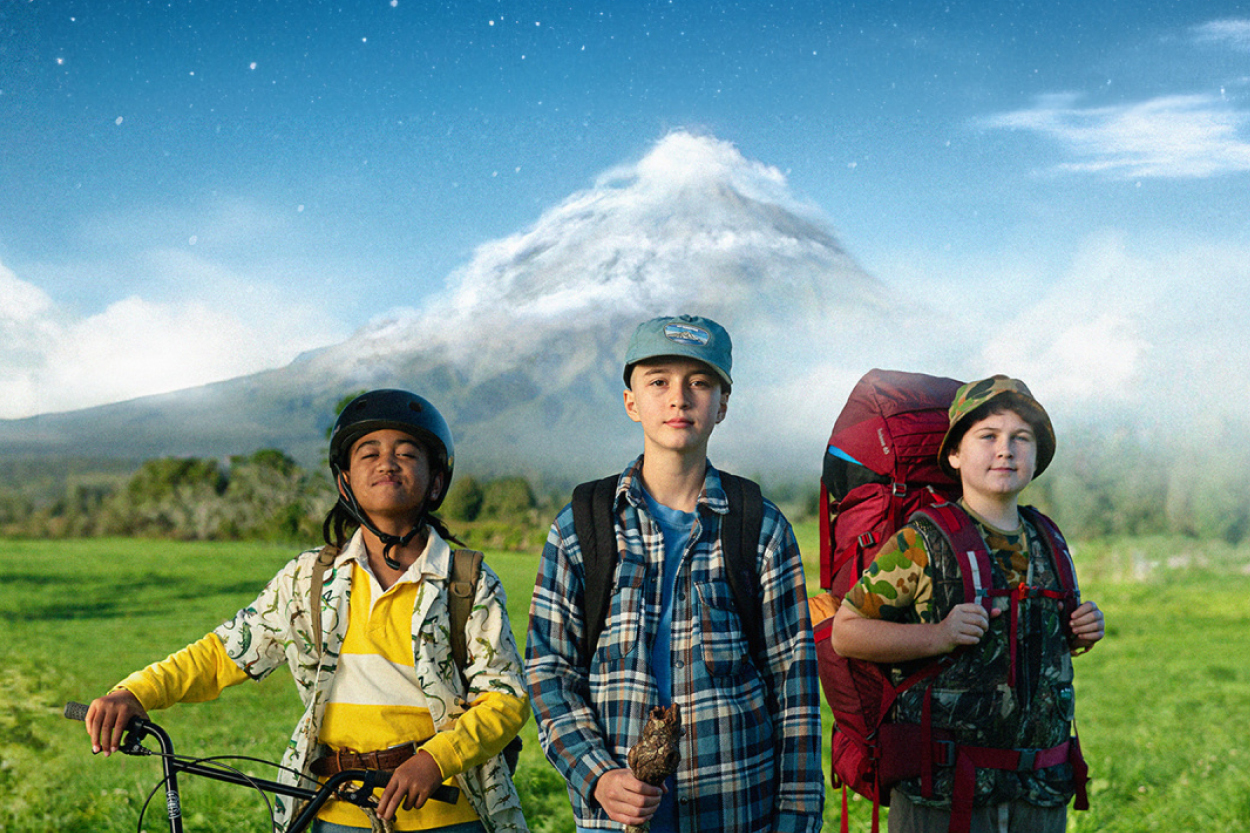
It feels like House’s latest project is just the start of an exciting new chapter for this artistic multi-hyphenate, whose move into feature film directing could open a number of doors for new ventures in the coming years. “I would really like to do a thriller,” she says, when I ask her what’s next, “like a funny thriller.” Immediately, I imagine House’s take on the classic sleuth archetype, complete with a Sherlock-esque trench, a piercing stare, sharp wits, and that dry, devastating humour we’ve come to know so well. Sounds like a movie I’d like to see.
Whatever is next for House (and she indicates that there are a number of projects on the horizon that she “really can’t talk about yet”) it’s clear that this is an actor and director who knows what she wants to say, and how she wants to say it. “At this point in my life, I just want to do things that matter to me somehow,” she says, just before we part ways. “And whether that’s a really great, rollicking, entertaining role, or another writing and directing project, I am definitely more selective, which I think is important going forward.”
For everything she has done and for everything she has yet to do, I am looking forward to watching how House continues to evolve within the industry to which she has already contributed so much. It would seem she has a lot more to say and I, for one, am all ears.

